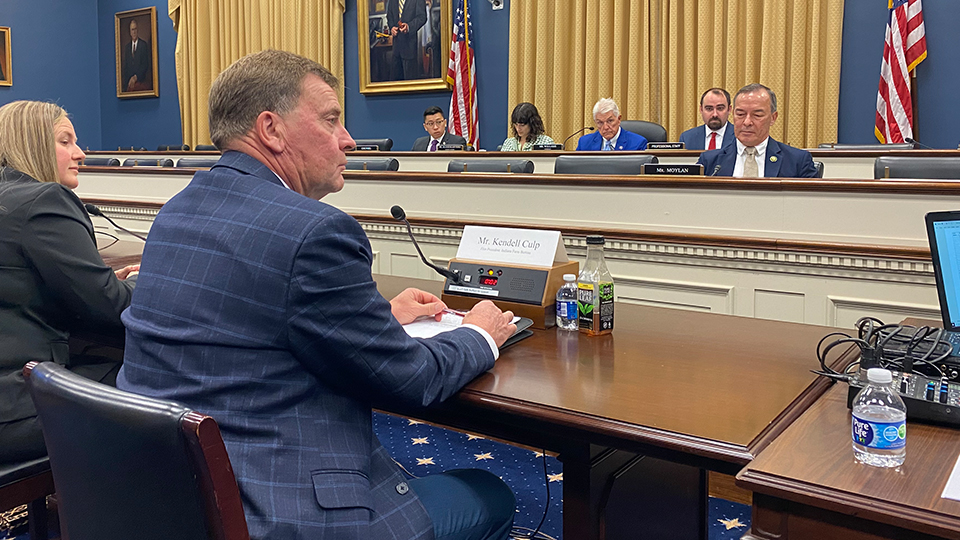Farm Bureau VP urges Congress to support rural small business in D.C. hearing
Subscriber Benefit
As a subscriber you can listen to articles at work, in the car, or while you work out. Subscribe Now
The vice president of the Indiana Farm Bureau says there are steps Congress can take to help small businesses in rural Indiana remain solvent and grow, helping to boost their local communities.
Kendell Culp on Wednesday testified before the U.S. House Committee on Small Business, which held a hearing on examining the challenges and state of rural small businesses.
Despite many of the challenges facing businesses in rural communities, Culp urged Congress to pass a bipartisan 2023 Farm Bill on time, which he says would help businesses with access to much needed resources.
In an interview with Inside INdiana Business, Culp outlined some of the challenges facing rural businesses.
“Fifty-three percent of Indiana counties lost population in 2020; the majority of those, far and away, are rural counties. So, loss of population, which means loss of workforce is a big issue,” Culp said. “We talked a lot about broadband and the connectivity for those small businesses in rural communities and farmers as well. I talked about the need for child care in our rural communities and how [people in] a lot of communities may have to drive 30, 40, 50 minutes away to get those services, and that of course affects your workforce.”
Culp is also a State Representative in Indiana House District 16, which covers portions of Jasper, Pulaski, Starke and White counties in northwest Indiana. The Rensselaer native also owns a farm that grows corn and soybeans and raises beef cattle.
During his testimony, Culp mentioned how Jasper County was until recently a child care desert. He noted the opening earlier this year of Appletree Rensselaer, an early childhood education center established by the not-for-profit Appleseed Childhood Education and Franciscan Health Rensselaer, which provides care for about 70 children.
“It really showed that if a community comes together and pools their energy and pools their resources, we can tackle an issue and come to resolve,” Culp said.
Culp said the Rural Development title in the Farm Bill would be a major step in supporting rural businesses. He said there are a number of grant opportunities that small businesses can apply for, as well as economic development incentives for communities.
“There’s a lot of help out there if you know where to look and how to access that, and that was really talked lot about, too,” he said. “There was a lot of talk from the members, not from the people testifying, but really they were trying to pinpoint some of those issues and some of those concerns and how they could improve upon that.”
Culp said the tenor of the meeting was a positive one with the members of the committee expressing a desire to support small businesses.
“I think the focus is going to be to make sure that the government programs and agencies that are responsible for administering them are getting the money out into the communities and the hands of those small businesses where it’s going to do the most good. I think that’s a great goal to have and they seem to be pretty uniform in their willingness to try to accomplish that.
And supporting rural small businesses isn’t just coming from the federal level. Culp said the Indiana General Assembly took steps in this year’s legislative session, including passing a $70 million revolving loan fund for housing infrastructure.
Additionally, the Legislature approved the creation of education savings accounts to help high school seniors who are participating in some form of Work and Learn program pay for special equipment, clothing or certifications to help skill themselves up for a future employment opportunity.
Culp said the state also needs more advocates for Indiana’s rural communities.
“I don’t see a lot of other groups that are really out advocating for those Main Street businesses up and down the main streets of their home towns. So, we just need more people that will spread the word and that will stand up and really beat the drums for our communities, and our local businesses are a big part of that.”
You can view the hearing, beginning with Culp’s opening remarks in the video below:
